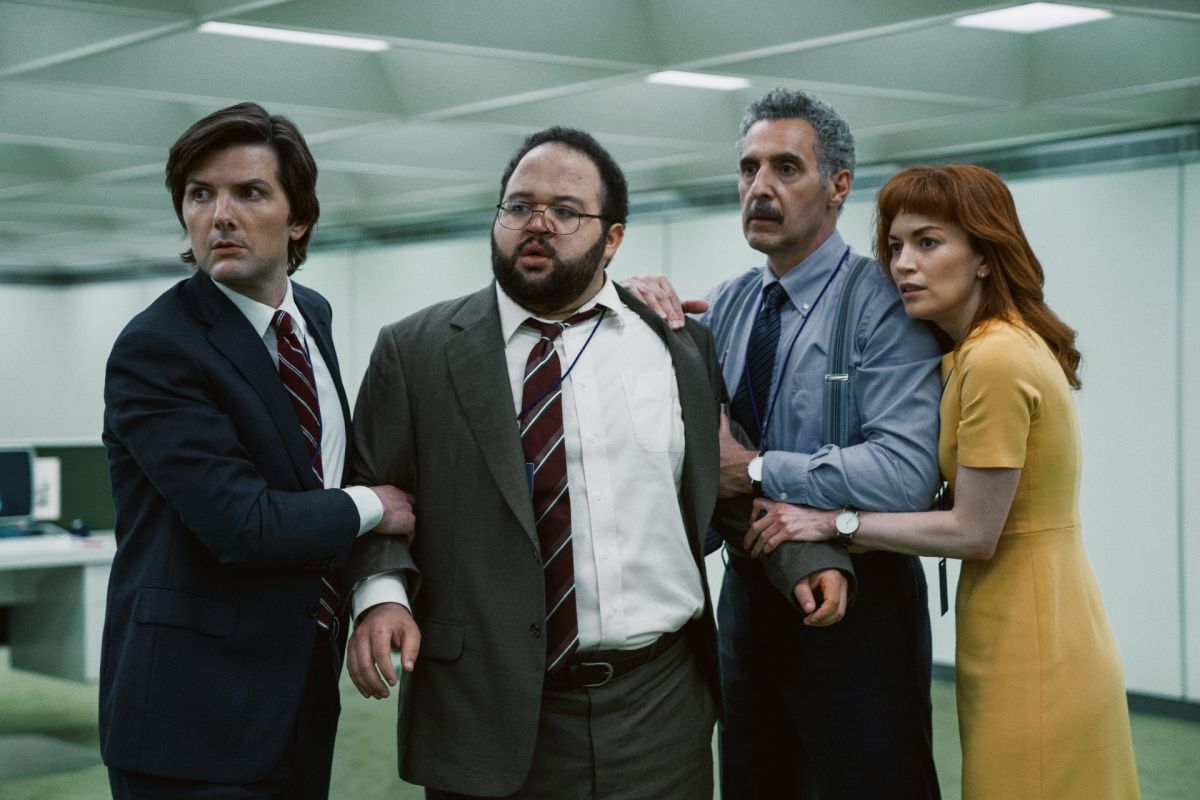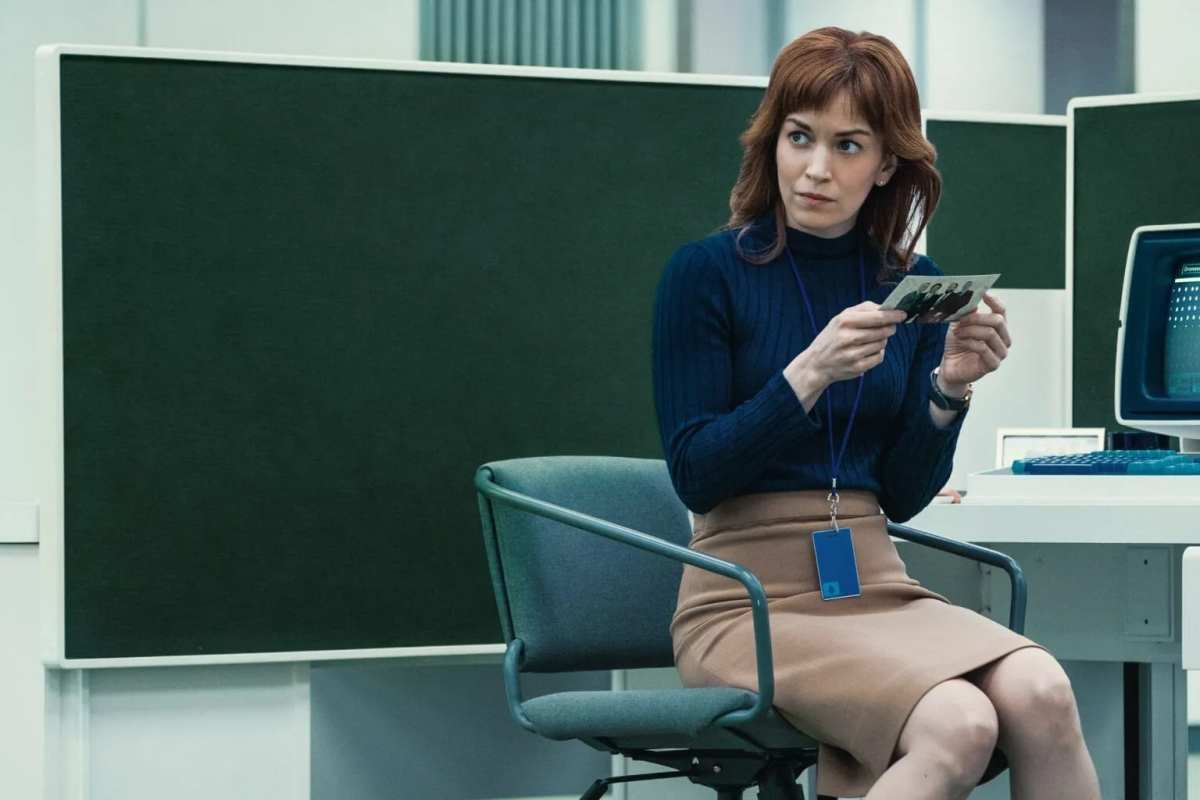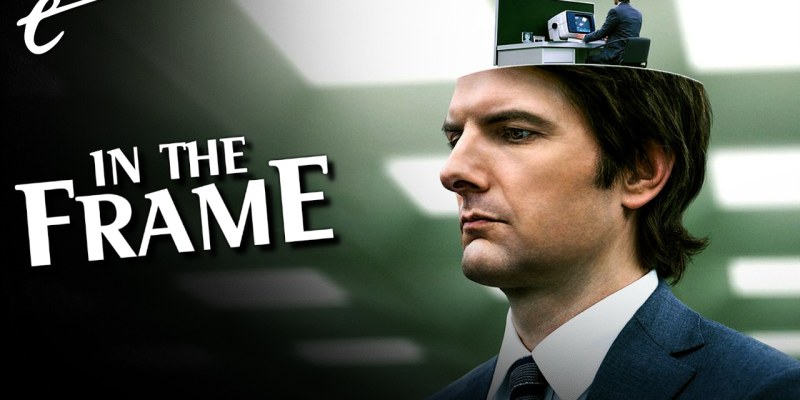Severance wrapped its first season last week. The Apple TV+ drama is one of the best new television shows of the year, and it offers a compelling science fiction satire of contemporary corporate culture.
Severance is driven by a clever high concept. It takes place in a world where employees can undergo a process known as “severance.” The surgical procedure effectively cleaves a person in half, separating their work memories from their personal memories, ensuring that the work memories (and only the work memories) can only be accessed on company premises. The result of this is that employees effectively become two separate people: the “innie” in the office and the “outie” outside.
Ostensibly, a person who is “severed” enjoys the cleanest possible work/life balance. They are literally a different person inside and outside the office, with neither half retaining any awareness of the other. In reality, the situation is decidedly more complicated. The “outie” enjoys a steady paycheck with no experience of work, but the “innie” lives a life that is nothing but work. For an “innie,” there is no work/life balance; there is only work.
Like all great science fiction ideas, this is an escalation of a facet of modern culture. Severance puts a science fiction veneer on recognizable trends in contemporary American popular culture. To be fair, some of this resonance is entirely coincidental. The show was already in production when it was interrupted by the pandemic, but the series’s recurring fascination with isolation and disconnect resonates differently than it would have when the show was initially conceived.

The show’s concerns about corporate culture are heightened at a time when major corporations are trying to get employees back to the office. The show’s minimalism and retrofuturism, inspired by movies like Jacques Tati’s Playtime, don’t seem quite as absurd in a world where Google offers employees robot-controlled inflatable privacy walls in the office. The promise of a “waffle party” as a reward is not too far removed from companies trying to lure staff back with beer and popcorn.
However, the pandemic isn’t responsible for the current debate between companies and employees over office culture. The stresses of the pandemic, in which major companies made record profits while many of their employees struggled to make ends meet, simply pushed a simmering tension to boil. The pandemic forced workers to confront the question of whether the office, and the culture around it, was suiting their needs.
The “innies” in Severance have no frame of reference for life outside the basement office that they share. They occasionally might get snippets of information about life beyond the corporate headquarters, but these pieces of information are often distorted and nonsensical. Instead, their entire existence is shaped by corporate culture, as overseen by supervisor Seth Milchick (Tramell Tillman) and boss Harmony Cobel (Patricia Arquette).
As such, Lumon Industries has expanded to meet every need that it imagines its staff could have. With nothing existing for staff members outside the communal work environment, that space has become a world unto itself. There are “wellness” sessions, where employees are refreshed and relaxed. There is the “break room,” where employees are punished in a ritual manner. Perks are handed out as a sign of status, even though they have no material value.

“The erasers are mostly decorative, since we don’t have pencils,” explains Dylan (Zach Cherry) of the rewards that he has accumulated. “Finger trap is fun, as long as you know how to use it safely. But it’s really more about what they represent, how far you got in the file.” None of the employees even know what they are doing or what “the file” is. Showrunner Dan Erickson reportedly drew on his own experience entering data in “temp corporate office jobs” for the show.
This is just a slight exaggeration of current trends in corporate life. It is particularly prevalent at tech companies like Google, that often seem to (unofficially) encourage workers to live at the office. A worker named Matthew Weaver lived in an RV in the company parking lot for a year. That was practically luxury; another employee named Brandon lived in a truck in the company parking lot while using corporate facilities to shower and groom.
Many modern companies offer their employees gourmet food and “sleep pods,” as if asking why anybody would ever want to leave the premises. “Why don’t we just live at work?” quipped columnist Michael Moran in 2014. Aaron Levie, CEO at Box, recalled his life at the office, “And for the first two-and-a-half years I slept on a mattress in the office. It was like living on a submarine – I’d roll out of bed and start work. I’d go more than two days without ever leaving the building.”
In Severance, Lumon Industries is not so much a culture as a cult. Milchick pauses to admire the carving of the company’s founder on the reception area wall. “I love seeing the sunrise on his face. You know he used to drink three raw eggs in milk each morning?” Burt (Christopher Walken) from Optics and Design insists that this forefather “doesn’t just speak to us through the handbook or the paintings. He finds other ways.”

Irv (John Turturro) treats the company handbook as a religious text, warning Dylan, “Don’t pervert a handbook passage to me, okay?” Any other reading material is “an idolatrous text.” The office space is decorated with classical paintings illustrating key moments like “The Youthful Convalescence of Kier,” bringing a “handbook passage” to life. New recruits are often taken on a guided tour of the Perpetuity Wing to inspire them with a sense of the company’s sacred mission.
Again, none of this feels too far removed from the excesses of modern corporate culture. Former employees have described Facebook as “cult-like.” There is a “moral and religious significance” to the choice of words in Google’s slogan, “Don’t be evil.” In 2012, David Segal wrote about how Apple fostered “an employee culture that tries to turn every job into an exalted mission.” In the past decade or so, observers have written about the cult-like sensibility infusing corporate culture.
After all, the worship of Kier Eagan is not too far removed from the veneration of modern CEOs in certain quarters. While Americans are wary of billionaires as a social class, they are fonder of individuals. Steve Jobs is an almost religious figure. Elon Musk is greeted by fans with “a passion better suited to a megachurch pastor than a tech mogul.” Jeff Bezos sees himself as a pioneer who isn’t just a corporate executive, but a visionary who will lead mankind to the stars.
The smiling face that Lumon Industries presents to its employees will resonate to anybody who has worked in modern corporate culture. It presents as friendly and welcoming, adopting an uncanny and uncomfortable imitation of empathy reflected in processes like “happiness training.” Employees are indoctrinated and guided through carefully prepared documents that offer ruthless capitalist simulacra of humanity and intimacy.

This concern for its employees’ wellbeing is just a facade. Lumon operates intense surveillance on its employees similar to Facebook’s “rat-catching” teams. Much like Amazon reportedly intends to carefully regulate speech on its chat app to censor phrases like “pay raise,” “living wage,” and even “this is dumb,” Lumon limits staff’s ability to communicate with the outside world. Much as companies like Starbucks or Amazon fight unionization, Lumon sews division between teams to keep them from organizing.
Severance imagines a world in which massive corporations have grown to dominate the lives of their employees so they are not just a place of work, but serve every conceivable social and personal function. Lumon treats its severed employees like children, patronizing and manipulating them. It provides a moral and religious framework, a sense of purpose and identity. It is obviously a heightened science fiction premise, but its dystopia is unsettlingly evocative of the modern world.
As characters repeatedly point out, when an “outie” leaves their job, the “innie” ceases to exist. After all, the “innie” only exists on company property, so once the “outie” stops visiting, that is really it. This small detail gets at the real horror of Severance: a world where there is literally no life beyond work.
